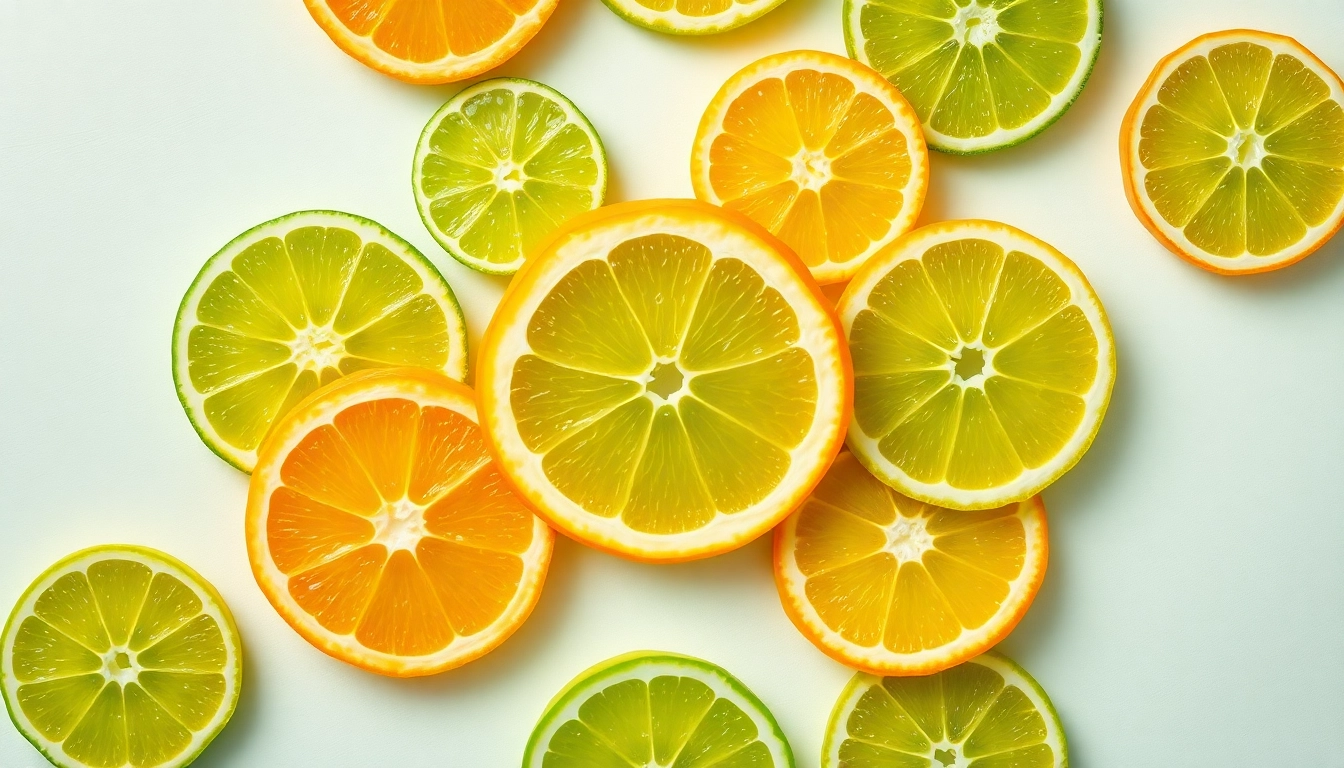What Are Electrolytes and Why They Matter
Defining Electrolytes and Their Roles
Electrolytes are essential minerals that carry an electric charge when dissolved in fluids, such as blood and other bodily fluids. They play a critical role in a variety of physiological processes, including the regulation of hydration, nerve function, muscle function, and the maintenance of acid-base balance in the body. Sodium, potassium, calcium, magnesium, chloride, bicarbonate, and phosphate are among the key electrolytes that the body needs to function optimally. When you consume electrolytes through food or beverages, they dissociate into ions, allowing them to conduct electricity and take part in biochemical activities that support health.
Key Types of Electrolytes in Our Body
The major electrolytes and their primary functions include:
- Sodium (Na+): Major positive ion in extracellular fluid, crucial for fluid balance, nerve transmission, and muscle contraction.
- Potassium (K+): Predominantly found inside cells, vital for muscle function, nerve impulses, and heart rhythm.
- Calcium (Ca2+): Important for bone health, muscle contraction, blood clotting, and neurotransmitter release.
- Magnesium (Mg2+): Essential for over 300 biochemical reactions in the body, including protein synthesis and energy production.
- Chloride (Cl-): Helps maintain fluid balance and makes up stomach acid (HCl) necessary for digestion.
- Bicarbonate (HCO3-): Essential in maintaining the body’s pH balance and acting as a buffer.
- Phosphate (PO4^3-): Involved in energy production and storage (as ATP) and bone health.
Understanding Electrolyte Imbalance
Electrolyte imbalance occurs when the levels of electrolytes in your body are either too high or too low, which can disrupt normal bodily functions. Common causes include dehydration, excessive sweating, kidney diseases, malnutrition, and certain medications. Symptoms can vary depending on which electrolyte is imbalanced, ranging from muscle weakness and cramping to confusion, fatigue, and even heart rhythm disturbances. It is crucial to monitor electrolyte levels, especially for those participating in intense physical activities or those with specific health conditions.
Sources of Electrolytes Through Diet
Top Foods Rich in Electrolytes
A balanced diet typically provides adequate electrolytes. Here are some top foods rich in specific electrolytes:
- Potassium: Bananas, oranges, potatoes, spinach, beets, and beans.
- Sodium: Table salt, seafood, and processed foods.
- Calcium: Dairy products (milk, cheese, yogurt), leafy greens, and fortified plant-based milk.
- Magnesium: Nuts (especially almonds and cashews), seeds, whole grains, and green leafy vegetables.
- Chloride: Table salt, tomatoes, lettuce, and olives.
- Bicarbonate: Typically produced by the body but can also be supplemented through alkaline water or baking soda.
- Phosphate: Meat, dairy, nuts, and whole grains.
Electrolyte-Infused Beverages to Try
In addition to solid food sources, various beverages are rich in electrolytes. Here are some electrolyte-infused drinks you might consider:
- Coconut Water: Contains potassium and magnesium, making it a great natural electrolyte drink.
- Electrolyte Drinks: Products like sports drinks and specialized electrolyte mixes designed for hydration.
- Milk: Rich in calcium and also provides a good balance of carbohydrates and protein.
- Palm Water: Contains natural sugars and electrolytes, perfect for replenishment.
- Sports Drinks: Specifically formulated to replenish lost electrolytes during and after exercise but watch out for excessive sugar.
- Fruit Juices: Juices from oranges, watermelons, and other fruits contain natural sugars along with vital electrolytes.
How Cooking Affects Electrolyte Content
Cooking methods can have a significant impact on the electrolyte content of foods. For example, boiling vegetables can cause certain vitamins and minerals to leach into the cooking water, leading to a reduction in nutrient content. On the other hand, methods like grilling, steaming, and microwaving can help retain the majority of electrolytes. To maximize your intake of electrolytes, consider incorporating raw or minimally cooked vegetables into your diet, and using methods that help preserve their nutritional properties.
Signs of Electrolyte Imbalance
Common Symptoms to Look For
Recognizing the signs of electrolyte imbalance is crucial for timely intervention. Common symptoms may include:
- Muscle cramps or spasms
- Increased thirst and dry mouth
- Fatigue and weakness
- Dizziness or light-headedness
- Unexplained confusion or changes in mental status
- Irregular heartbeat
- Swelling in the extremities
Risk Factors Leading to Imbalance
Several factors can increase the risk of electrolyte imbalance, including:
- Dehydration: Excessive sweating, not drinking enough fluids, or illness can lead to a depletion of electrolytes.
- Diets Low in Nutrients: A poor diet lacking in electrolytes can contribute to imbalances.
- Medical Conditions: Conditions such as kidney disease or hormonal disorders can interfere with electrolyte regulation.
- Medications: Certain drugs, especially diuretics, can produce imbalances by increasing fluid loss.
- Intense Exercise: Profuse sweating during prolonged physical activity can deplete electrolyte levels.
When to Seek Medical Advice
If you experience severe symptoms of electrolyte imbalance, such as persistent muscle cramps, confusion, or irregular heartbeats, you should seek medical advice immediately. Additionally, if you are under medical treatment that impacts electrolyte levels, regular monitoring by a healthcare professional is essential.
Electrolyte Supplements: Are They Necessary?
Types of Electrolyte Supplements Available
Electrolyte supplements come in various forms. Some of the most common include:
- Pills and Tablets: These deliver a specific dose of key electrolytes in a convenient form.
- Powders: Designed to be mixed with water, these often contain a blend of electrolytes in liquid form.
- Ready-to-Drink Liquids: Bottled electrolyte drinks available at stores, ideal for on-the-go consumption.
- Homemade Recipes: You can create your own electrolyte drink using water, sugar, and salt.
Benefits and Drawbacks of Supplementation
While supplementing can be beneficial, it’s important to weigh the pros and cons:
Benefits:
- Convenient source for athletes or active individuals needing quick replenishment.
- May support recovery post-exercise.
- Helps maintain hydration levels during illness or extreme heat.
Drawbacks:
- Some supplements may contain excessive sugar or other additives.
- Overconsumption can lead to toxicity or ulcers, particularly with sodium or potassium.
- Not necessary for everyone—healthier individuals with a balanced diet might not need supplementation.
Guidelines for Safe Usage
To use electrolyte supplements safely, consider these guidelines:
- Consult your healthcare provider, especially if you have underlying health conditions.
- Follow the recommended serving size on the package.
- Monitor how your body responds after introduction to supplements.
- Balance electrolyte intake with water consumption to avoid dehydration.
Hydration and Electrolyte Balance
Importance of Hydration in Maintaining Balance
Hydration and electrolyte balance are intertwined. Proper hydration is crucial for maintaining the concentration of electrolytes in bodily fluids. Inadequate water intake can lead to dehydration, which can disrupt electrolyte levels and result in an imbalance, affecting organ function and overall wellbeing. To maintain balance, it’s essential to drink adequate fluids throughout the day, especially when engaging in strenuous activities or in hot weather.
Best Practices for Staying Hydrated
To ensure optimal hydration and electrolyte balance, incorporate these practices into your routine:
- Drink water regularly, aiming for at least 8-10 cups per day, adjusting according to activity level and climate.
- Include electrolyte-rich foods in your meals or snacks.
- Listen to your body; increase fluid intake during workouts, with illness, or after consuming alcohol.
- Utilize hydration tracking apps to monitor intake if needed.
- Consider hydration before, during, and after exercise, particularly for longer durations.
Understanding Electrolytes in Sports Drinks
Sports drinks are formulated specifically to replenish fluids and electrolytes lost during intense exercise. However, they often contain sugars and other ingredients that may not be beneficial for everyone. It’s essential to view sports drinks as supplements rather than replacements for water and whole foods. When choosing a sports drink, consider your specific needs, such as the length and intensity of your activity, and read labels to ensure you’re not overconsuming sugar.



